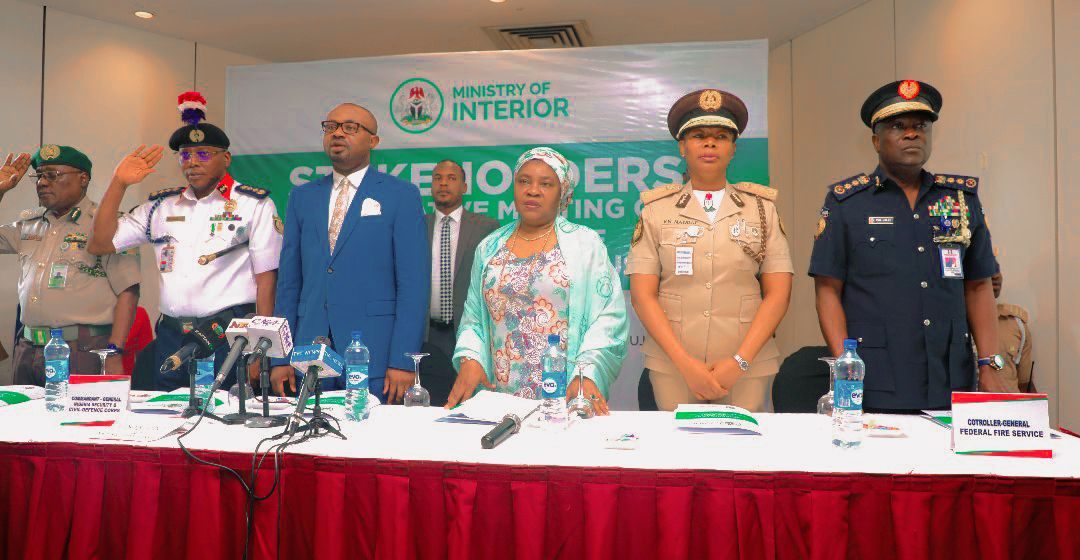The necessity for extensive reforms has been emphasized by the Honorable Minister of Interior, Dr. Olubunmi Tunji-Ojo, who has emphasized the vital role that the private security sector plays within Nigeria’s national security framework.
Speaking at the Nigerian Private Security Guards Industry Stakeholders Consultative Meeting on Tuesday, May 21, 2024, in Abuja, Dr. Tunji-Ojo stated that a significant component of the reform is to repeal and re-enact the Private Guards Company Act of 1986.
This is required to bring the regulatory framework up to date, make sure it complies with industry standards, and handle modern security issues.
“I have not signed a single license since I became the Interior Minister because I have not yet seen a proposal that fulfills my expectations for the sector.
“Being a multi-billion dollar industry, the private security sector deserves respect and pride. Since we lack the personnel on the ground to securely protect 200 million people, Tunji-Ojo stated, “We must create an industry of which we can be proud.”
The Minister also announced the creation of a classification system for licenses for private security companies in an effort to raise industry standards. Based on share capital and fees, this system assigns grades, all of which have to adhere to strict guidelines.
Companies need to have a share capital of N100 million, pay an annual renewal fee of N500,000, and have a license fee of N10 million in order to obtain a Grade A license that offers national coverage. A share capital of N50 million, a N5 million license fee, and an annual renewal fee of N300,000 are required for Grade B (Zonal).
In the same way, Grade D (City/Local Government) has a share capital of N10 million, a license fee of N1 million, and an annual renewal fee of N100,000. Grade C (State) has a share capital of N30 million, a license fee of N3 million, and an annual renewal fee of N200,000.
Additionally, the Minister emphasized that private guards must undergo extensive background checks and receive proper training. “Native intelligence alone will no longer be sufficient for private guards; career advancement through specific courses will become required,” he declared.
Speaking about the issue of uneven pay for private security guards, Tunji-Ojo gave the assurance that the changes will guarantee equitable compensation by bringing guard pay into line with the National Minimum Wage Act.
He went on to say that the Federal Executive Council approved the creation of a Guard Management System last December, which will oversee the entire licensing process and ensure industry standards.
A tripartite committee, led by the Permanent Secretary of the Ministry of Interior, Dr. Aishetu Gogo Ndayako, has been formed to develop criteria and qualifications for the classification of private security companies.
This committee, which includes three members from the Ministry of Interior, the Nigeria Security and Civil Defence Corps (NSCDC), and the Association of Private Security Guards in Nigeria, has a three-week deadline to submit their report.
Dr. Ndayako encouraged stakeholders to take an active role in shaping the future of Nigeria’s private security guard services.
In the same vein, Ahmed Audi, Commandant-General of NSCDC, highlighted ongoing efforts to digitize the license renewal process and pledged continued collaboration with operators to increase system efficiency.
During the interactive session, private security guard operators, led by Dr. Chris Adigwu, National President of the Association of Licensed Private Security Practitioners of Nigeria, identified industry challenges and asked the Ministry to intervene to address them.



Leave a Reply